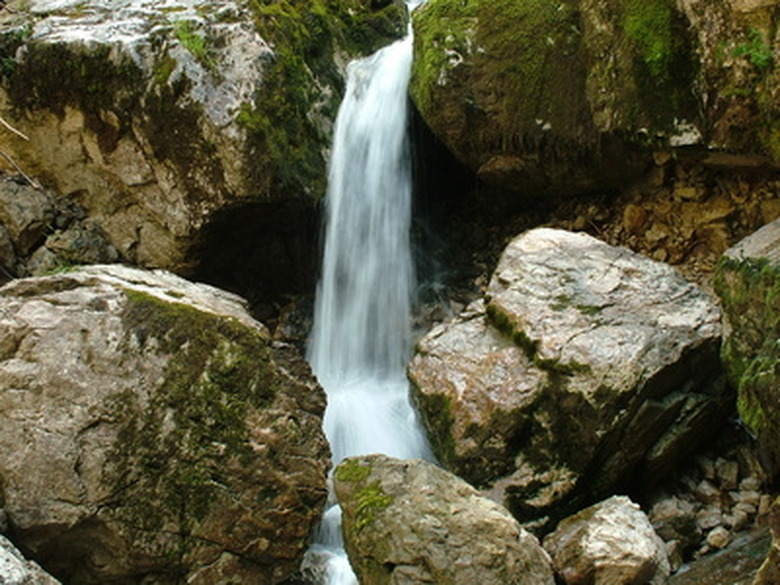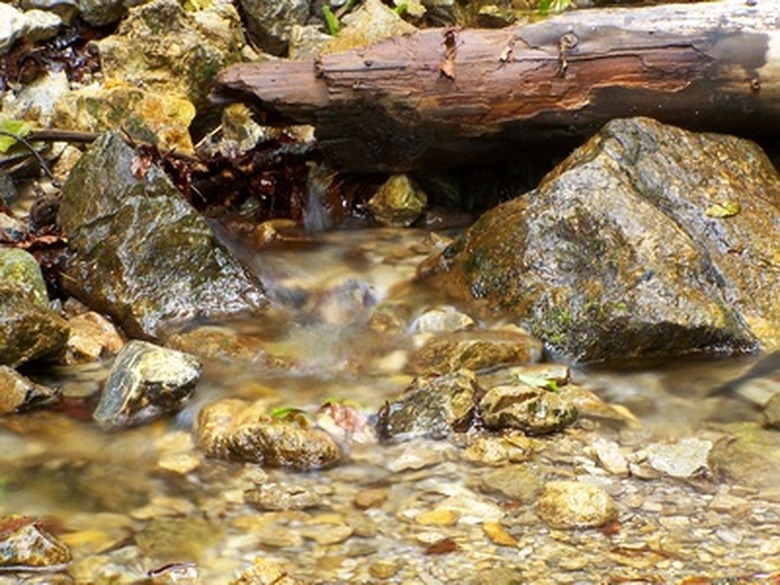What Minerals In Water Help Plants Grow?
It is a fact that all plants need water, but what is in the water is just as necessary as the water itself. Water is hydrogen and oxygen, but when it moves through the earth it may pick up minerals as well; minerals that might be just what your plants need.
Elements in Water
There are 16 chemical elements in water, both non-mineral and mineral. The non-mineral elements are hydrogen, carbon and oxygen, which are also found in air.
Water also contains micronutrient and macronutrient elements. As water percolates through the earth it may pick up elements that change the mineral content of the water. For instance, water that percolates through a part of a copper mine may have more copper in it; water that percolates through ground that naturally has a high percentage of potassium will have a higher level of sodium salts, which could build up and be detrimental to plant development.
- It is a fact that all plants need water, but what is in the water is just as necessary as the water itself.
- Water is hydrogen and oxygen, but when it moves through the earth it may pick up minerals as well; minerals that might be just what your plants need.
Testing Your Water
The only sure way of finding out what minerals are in your water is to have it tested by your local Cooperative Extension Service or your water company. You can get a complete listing of the minerals in your water and their percentages. This service is often free or inexpensive.
Macronutrients
Macronutrients are broken down into two groups: primary and secondary. The primary ones, nitrogen (N), phosphorus (P), and Potassium (K) are the common elements found in garden fertilizers. The first one to be depleted by the plant is usually nitrogen. Nitrogen is necessary to promote rapid growth, leaf, blossom, fruit and seed development and increases plant proteins.
- The only sure way of finding out what minerals are in your water is to have it tested by your local Cooperative Extension Service or your water company.
Phosphorus stimulates early plant growth and development and contributes to the general hardiness of the entire plant.
Potassium works in preventing disease and develops carbohydrate, starches and sugars to increase development of fruit.
The secondary macronutrients are calcium, which is vital for building healthy cell walls and strong roots and stems; magnesium, which is essential for photosynthesis, and sulfur, which helps in the formation of chlorophyll and development of vitamins. The only sulfur needed is provided by rain water.
Micronutrients
Micronutrients, often referred to as trace elements, are boron, copper, chloride, iron, manganese, molybdenum and zinc. Zinc, copper and manganese are linked to chlorophyll synthesis, iron acts as a catalyst in the photosynthesis/respiration process as well as working to activate certain other enzymes.
Fulfilling Your Plants Needs
Generally speaking, water alone does not supply much in the way of minerals to your plants, unless you live in an area where the ground is rich is certain elements.
- Phosphorus stimulates early plant growth and development and contributes to the general hardiness of the entire plant.
- The secondary macronutrients are calcium, which is vital for building healthy cell walls and strong roots and stems; magnesium, which is essential for photosynthesis, and sulfur, which helps in the formation of chlorophyll and development of vitamins.
If you add compost (micronutrients) to your garden as well as fertilizer (macronutrients), your plants will be getting everything they need, except of course, water.

